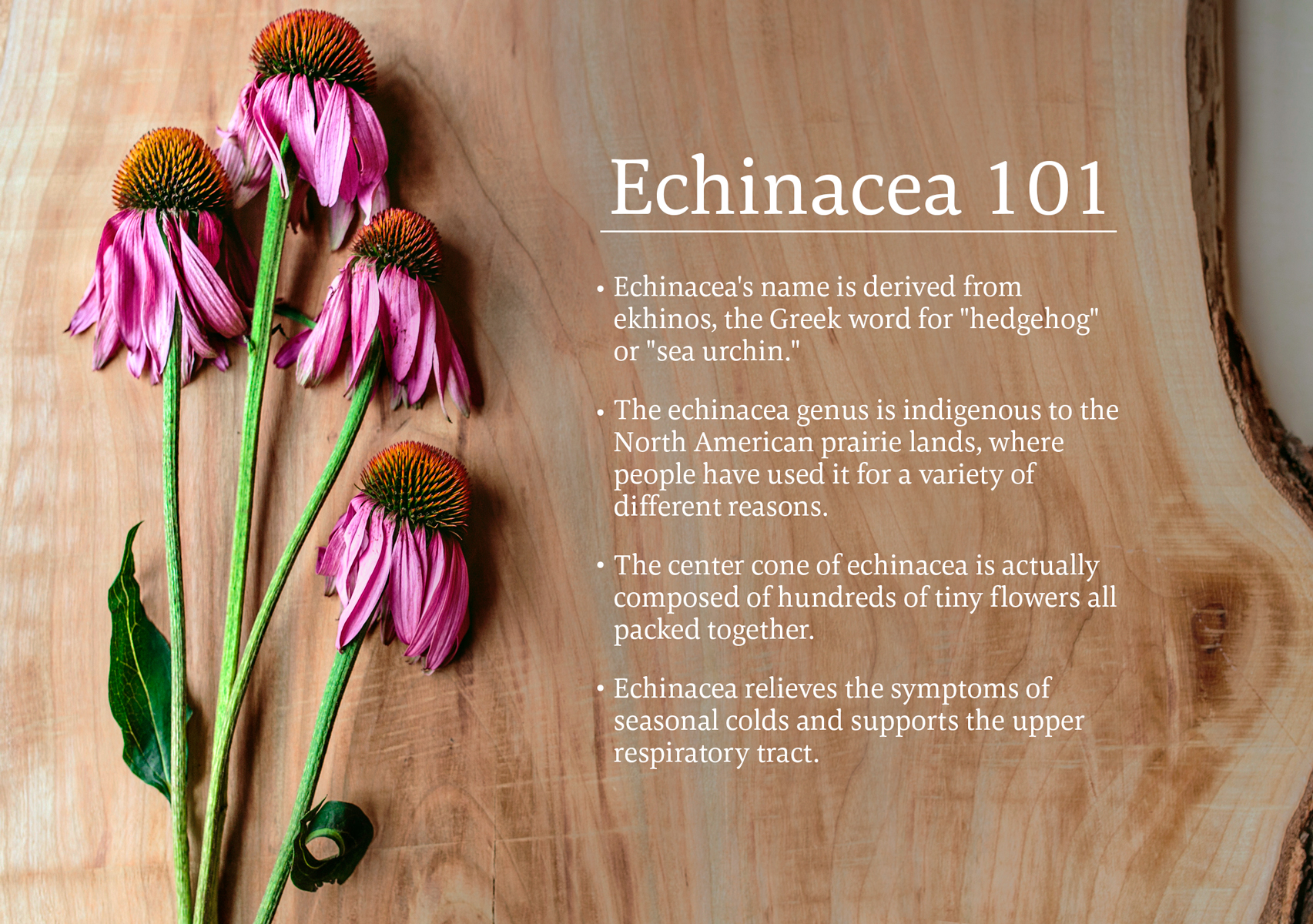It is no wonder that the colorful echinacea plant has become a household name. More commonly known as “coneflower,” this plant is native to North America but has also made its way to Europe, where it has become firmly integrated into Western herbal tradition.
Through generations of traditional use and modern scientific backing, echinacea has become a well-established herb for helping relieve the symptoms of colds and upper respiratory tract infections. Our herbalists formulated Echinacea Plus® and Echinacea Plus® Elderberry teas using the sustainably grown Echinacea purpurea variety. Understanding that both echinacea flowering tops as well as the root contain valuable active compounds, our herbalists utilize both in our Echinacea Plus blends to ensure you receive a high-quality dose of plant medicine.
All members of the Echinacea genus are perennials that bloom with both disk and ray flowers. The purple ray flowers attach to a round, high and spiky cone—hence its common name “purple coneflower.” Technically speaking, this cone is actually composed of hundreds of flowers, all tightly packed together, which is how the plant got its botanical name: echin, derived from the Greek word ekhinos for “hedgehog.”

The entire Echinacea genus is indigenous to North America and originally dwelled in prairie lands, where it has been used as an all-purpose remedy for generations. As word of its healing powers spread and reached Europe, it gained even more popularity. By the beginning of the 20th century it was one of the most frequently used herbal medicines in the United States, which eventually led to the widespread overharvesting of this wild perennial. Thanks to the conservation and public education efforts of the United Plant Savers, cultivated echinacea is now available for widespread use in many regions of the world.
Fall and winter are wonderful times of year to sip your piping hot echinacea brew. Not only does this hot cup of tea help to warm you from the inside during the cold winter months, but the added benefit of echinacea flower and root support the most common symptoms of the season. If you are feeling the onset of a cold or upper respiratory infection, sipping echinacea tea throughout the day can provide relief.
So when you’re feeling like you need a plant ally to give you a boost, think of echinacea.
Our echinacea teas are the perfect formulas for you if you are experiencing those common cold weather symptoms, so you can stay vibrant, active and well all season long.
Now when you see a beautiful echinacea flower while you are out and about, its radiant purple flowers and sturdy structure will remind you just how powerful this plant really is.





